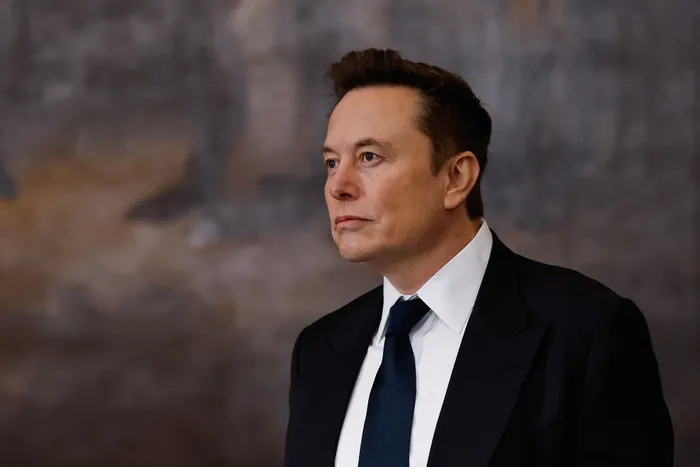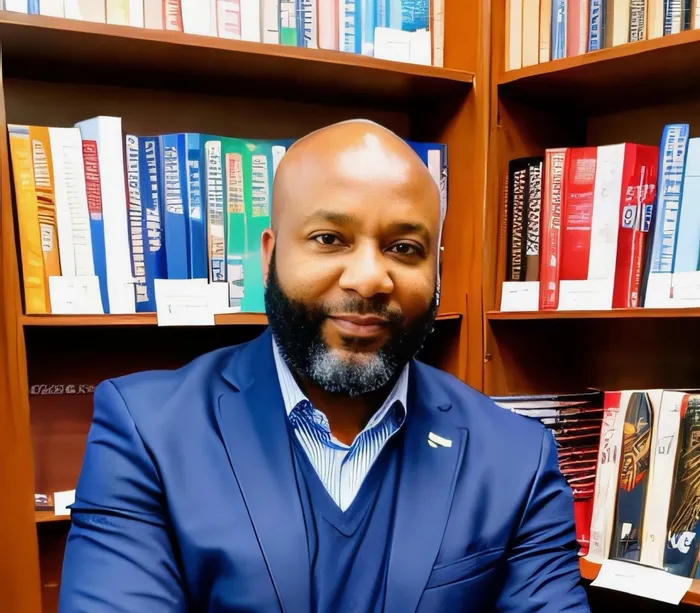Starlink in South Africa: A lifeline or a Trojan Horse

Understanding Starlink: Costs and controversies in South Africa.
Image: Reuters
As South Africa contemplates relaxing Black Economic Empowerment (BEE) regulations to enable Elon Musk’s Starlink to operate within its borders, a fierce national conversation must begin not about internet speeds, but about sovereignty, trust, and transformation.
On the surface, Starlink is everything this country has been waiting for: a space-age solution to a deeply terrestrial problem. In a country where only 10–15% of rural households have stable internet and where countless schools, clinics and police stations still struggle with basic connectivity, the promise of fast, reliable satellite broadband sounds like nothing short of a miracle.
But South Africa has been down this road before. Too often, technological “solutions” have arrived draped in global capital, wrapped in good intentions, and laced with fine print that erodes local agency. And this time, it comes delivered by Elon Musk, a billionaire with a South African birth certificate but a political track record that suggests deep contempt for this country’s values, institutions, and transformation agenda.

Elon Musk has previously claimed Starlink was barred from operating in South Africa because he is not Black, an allegation South African officials refuted.
Image: AFP
Economic Implications: Bridging the Digital Divide
By providing high-speed internet access, Starlink could spur educational opportunities, healthcare delivery, and economic development in regions currently lacking robust infrastructure. However, concerns persist regarding the affordability of Starlink’s services for low-income households.
The cost of equipment and subscriptions, currently upwards of R10,000 for the initial setup and about R1,000 per month, may remain prohibitive, thereby limiting the service’s reach to those who might benefit most. Moreover, the impact on existing internet service providers and the broader telecommunications market dynamics warrants careful consideration to avoid unintended economic disruptions.
Rural Connectivity in Numbers: What the Data Says
According to recent Icasa and Stats SA data, only 1 in 10 rural households in South Africa have access to stable broadband internet. In provinces like the Eastern Cape, Limpopo, and parts of KwaZulu-Natal, connectivity levels fall far below even that, creating a chasm between urban and rural access to information and services.
Schools and educational institutions in these areas face immense challenges, and teachers often lack digital resources, and learners cannot access online learning platforms. Police stations, clinics, and municipal offices in rural communities frequently struggle with outdated or unreliable internet, hampering everything from filing crime reports to accessing national health databases.
If made accessible through government partnerships or subsidisation, Starlink could potentially revolutionise service delivery in these critical sectors. Reliable internet could enable:
- E-learning platforms, including access to online textbooks, Zoom classes, and coding workshops.
- Real-time data sharing and crime monitoring for police stations.
- Telemedicine services in rural clinics.
- The Infrastructure We Desperately Need
South Africa needs a Starlink-like technology. Urgently.
The digital divide is a national emergency. In many rural communities, schoolchildren are still being taught without internet access, educators are cut off from digital training resources, and police stations file paperwork by hand. For millions, reliable internet is not just a tool; it’s the key to upward mobility, access to education, government services, employment and entrepreneurship.
Fibre rollout has been uneven and slow, hampered by budget constraints, corruption, and poor planning. For many municipalities, it simply isn’t coming. Starlink bypasses this bottleneck completely. Its satellite network can beam high-speed internet to anywhere in the country, virtually overnight. Its potential to transform rural economies, unlock innovation, and bridge geographic isolation is immense.
If implemented responsibly, Starlink could become the backbone of South Africa’s digital future. But there is a catch. And it’s not a small one.
Elon Musk: A Troubling Messenger for a Promising Message
This isn’t just about technology. It’s about who controls it, what values they bring, and how they wield influence when they disagree with a sovereign state. Musk has made no secret of his disdain for South Africa’s transformation policies. He has repeatedly called BEE “racist”, falsely implied that South Africa persecutes minorities, and re-platformed extremists on X (formerly Twitter) who push the debunked narrative of “white genocide” in South Africa. He has also used his AI chatbot, Grok, to propagate misleading information about the country’s crime, land reform, and race relations, often to an international audience unfamiliar with South Africa’s nuanced, post-apartheid reality.
In short, Musk has demonstrated he is not simply a tech CEO; he is a right-wing and racist political actor with a clear ideological agenda, one that aligns disturbingly well with global far-right narratives. The same man seeking control over vast swathes of South Africa’s internet infrastructure is the man publicly undermining its constitutional efforts to redress historical inequality.
Can Starlink Be a Trojan Horse?
We must then consider a chilling possibility: what if Starlink is not just a communications tool but a potential ideological delivery mechanism?
Because Starlink operates independently of local ISPs and existing telecom frameworks, it creates a “grey zone” where South African regulatory oversight may be severely limited. Suppose Starlink users connect directly to satellites, bypassing local data routing. In that case, it becomes exponentially harder for Icasa or the Department of Communications to monitor or enforce content compliance, cybersecurity laws, or data protection standards.
There is a real risk that Starlink’s user interfaces could favour Musk-owned platforms, including X and Grok, by default, particularly in rural or first-time internet environments. In such areas, where people have never encountered the internet before, what they first encounter shapes their worldview. If their first exposure to global information comes filtered through Musk’s ideological lens, South Africa may find itself nurturing a digitally colonised generation, raised on disinformation, anti-BEE sentiment, and narratives hostile to democracy and inclusion.
Musk's history of publicly antagonising states, suggests that he does not hesitate to politicise access and operations. The infrastructure we welcome in a crisis could become a tool for coercion down the line.
Desperation Must Not Lead to Dependency
South Africa is not naïve. We know what foreign capital can do when left unchecked. We’ve seen the headlines about tech giants hoarding data, undermining labour rights, and lobbying against taxation and transformation.
Yet we are also a country of immense potential, home to some of the most entrepreneurial, resilient, and digitally fluent young people on the continent. We deserve the best infrastructure the world can offer, but on our terms. Letting Starlink in without robust, transparent, and enforceable conditions would be an act of desperation masquerading as progress. It would open the floodgates for a private surveillance satellite network managed by a man who has shown hostility toward our democracy, contempt for our redress laws, and a worrying willingness to deploy his platforms in the service of racial disinformation.
We Need the Technology, But Not the Ideology
Here’s the bottom line: South Africa needs what Starlink does. But we do not need what Musk represents. If Starlink wants to operate in South Africa, it must commit formally, contractually, and transparently to:
- Respecting BEE or offering clear, independently monitored equity equivalence programmes.
- Routing local traffic locally, with compliance with data protection laws.
- Maintaining strict neutrality in content prioritisation, with no bias toward X or Grok
- Submitting to regulatory oversight and policy compliance, like every other communications provider
- This is not a technophobic stance. It is a constitutionally grounded, economically rational one. We should welcome the infrastructure, but not on bended knee.
Digital Inclusion Beyond Starlink: The Broader Blueprint
While Starlink presents a high-tech, fast-paced solution, it cannot be the sole pillar of South Africa’s digital inclusion strategy. More community-orientated, cost-effective models have shown promise and should be scaled up. Some alternatives include:
- TV White Space technology: Leveraging unused broadcasting frequencies to deliver broadband to remote areas at lower costs.
- Municipal broadband initiatives: Cities like Tshwane have experimented with free public Wi-Fi zones. A national roll-out of such models could bridge urban-rural divides.-Zero-rated data services: The success of zero-rated educational platforms like Siyavula and university portals during Covid-19 lockdowns shows how mobile networks can support learning and service delivery.
- Public-private infrastructure sharing: Local ISPs, in collaboration with the government and telecom giants, can pool resources to extend fibre-optic networks incrementally.
- Community mesh networks: Examples in Kenya and India show how decentralised, community-owned networks can operate at minimal costs with local buy-in and employment. These models foreground inclusivity, localisation and sustainability, important considerations if digital equity, and not just digital expansion, is the ultimate goal.

Nco Dube a political economist, businessman, and social commentator.
Image: Supplied
South Africa has the opportunity to lead, not just in embracing new technology, but in showing the world that digital sovereignty matters. That a country can open its doors to innovation without surrendering its soul. That connectivity should never come at the cost of equality, truth, or national dignity. Starlink may be part of our future. But if it is, it must be one where technology serves the people, not the ideology of one man.
(Dube is a political economist, businessman, and social commentator on Ukhozi FM. His views don't necessarily reflect those of the Sunday Tribune or IOL.)
SUNDAY TRIBUNE
Related Topics: